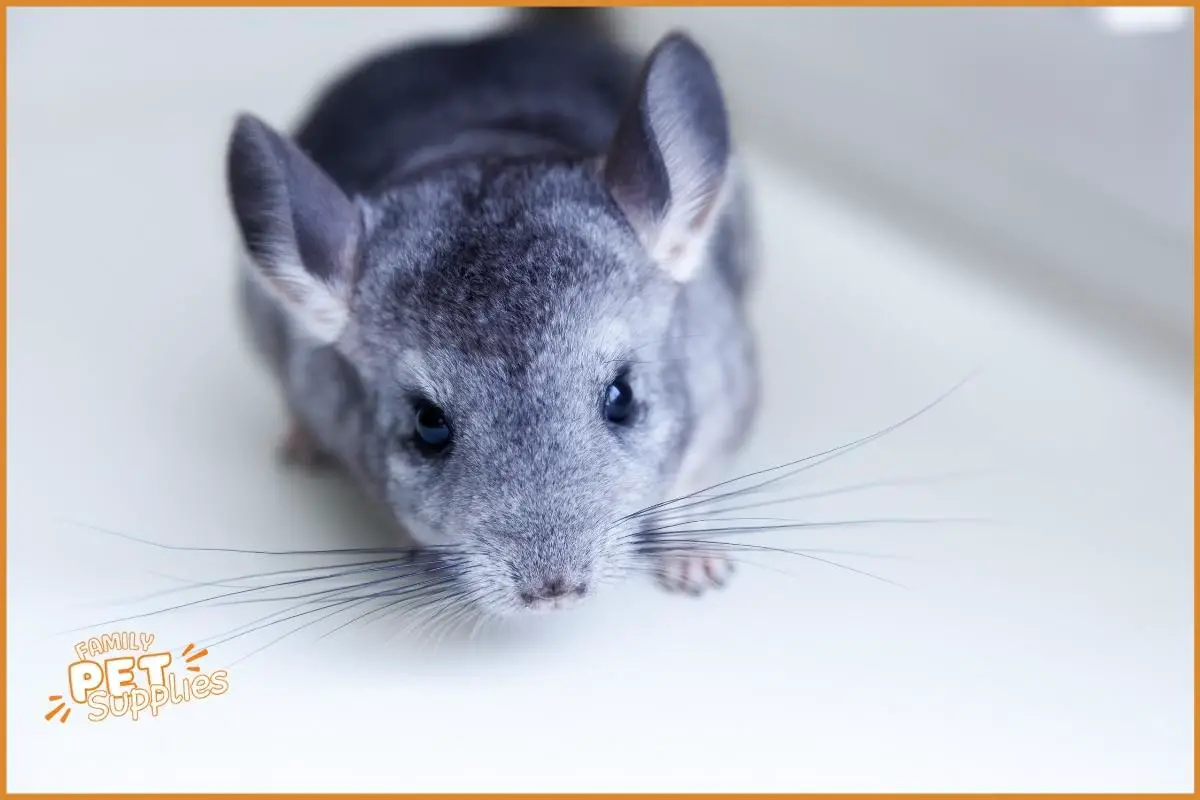Corn isn’t ideal for chinchillas. While they might eat it, it doesn’t offer optimal nutritional value. Stick to their primary diet of hay and chinchilla-specific pellets. Avoiding foods that don’t align with their dietary needs ensures better health.

Key Takeaways
- Feeding corn to chinchillas can lead to digestive problems and potential allergies.
- Corn is high in carbohydrates and low in fiber, which is not ideal for chinchilla’s nutritional needs.
- Hay and chinchilla-specific pellets should be the main components of a chinchilla’s diet for optimal health.
- Maintaining a balanced diet for chinchillas is important to prevent deficiencies and promote overall well-being.
Corn and Chinchillas: An Overview
While corn may be tempting to offer your chinchilla, it’s important to understand the potential risks associated with feeding them this food. Corn farming is a common practice, and it’s a staple in many human diets. However, chinchillas have specific dietary needs that differ from ours.
Corn is high in carbohydrates and low in fiber, which can lead to digestive problems for chinchillas. Additionally, some chinchillas may have corn allergies, causing adverse reactions such as skin irritations or gastrointestinal distress.
It’s best to avoid feeding your chinchilla corn and stick to their primary diet of hay and chinchilla-specific pellets. This will ensure that they receive the proper nutrition for optimal health and well-being.
Nutritional Value of Corn for Chinchillas
Now, let’s explore the nutritional value of corn for your chinchilla. While corn may be a common ingredient in some corn-based treats for chinchillas, it’s important to understand its impact on their digestive system. Although chinchillas may eat corn, it doesn’t provide optimal nutritional value for them.
Corn is high in carbohydrates and can be difficult for chinchillas to digest properly. It may lead to digestive issues such as bloating and diarrhea. It’s best to stick to their primary diet of hay and chinchilla-specific pellets, which provide the necessary nutrients for their overall health.
Avoiding foods that don’t align with their dietary needs ensures better digestion and overall well-being for your chinchilla.
Potential Risks of Feeding Corn to Chinchillas
Feeding corn to your chinchilla can pose potential risks to their health. While corn may be appealing to them, it isn’t suitable for their dietary needs. One of the main risks of corn for chinchillas is its high starch content. Chinchillas have a sensitive digestive system that isn’t designed to handle large amounts of starch. Consuming corn can lead to digestive problems such as diarrhea, bloating, and gastrointestinal discomfort.
Additionally, corn lacks essential nutrients that chinchillas require for optimal health. Feeding corn regularly can result in nutritional imbalances and deficiencies. It’s important to prioritize their primary diet of hay and chinchilla-specific pellets, which provide the necessary fiber, protein, and vitamins to support their well-being.
Alternatives to Corn for Chinchillas
To provide a healthier option for your chinchilla’s diet, consider incorporating alternative foods instead of corn.
While corn may be tempting to offer, there are healthier alternatives that align better with a chinchilla’s dietary needs.
One option is to focus on their primary diet of hay, which provides essential fiber for digestion.
Additionally, chinchilla-specific pellets can be a great source of essential nutrients, such as vitamins and minerals, that are necessary for their overall well-being.
It’s important to avoid foods that don’t offer optimal nutritional value to ensure your chinchilla stays healthy.
Incorporating Hay and Pellets Into Chinchilla’s Diet
To ensure optimal nutrition for your chinchilla, it’s important for you to incorporate hay and chinchilla-specific pellets into their diet.
Hay plays a crucial role in a chinchilla’s diet as it provides essential fiber, aids in digestion, and helps wear down their constantly growing teeth. Make sure to offer a variety of hays such as timothy, orchard grass, or meadow grass to add diversity to their diet.
Additionally, chinchilla-specific pellets are specially formulated to meet their nutritional needs, providing the right balance of vitamins, minerals, and fiber. These pellets should make up a significant portion of their daily food intake. It’s vital to choose pellets specifically made for chinchillas, as other small animal pellets may not meet their dietary requirements.
Balancing Chinchilla’s Diet for Optimal Health
By incorporating a balanced variety of hay and chinchilla-specific pellets into their diet, you can ensure optimal health for your chinchilla.
Hay is an essential component of a chinchilla’s diet as it provides numerous benefits. Firstly, it aids in maintaining good dental health by wearing down their constantly growing teeth. Additionally, hay provides the necessary fiber to support healthy digestion and prevent gastrointestinal issues.
Chinchilla-specific pellets are also crucial as they’re formulated to meet your chinchilla’s specific nutritional needs. These pellets contain essential vitamins and minerals that contribute to their overall well-being.
It’s important to maintain a balanced diet for your chinchilla to prevent deficiencies and promote optimal health. Remember to avoid foods like corn that lack nutritional value and may be harmful to your furry friend.
Final Thoughts on Feeding Corn to Chinchillas
When considering feeding corn to your chinchilla, it’s important to remember that it should be avoided due to its lack of nutritional value and potential harm to your furry friend. While chinchillas might eat corn, it doesn’t offer the optimal nutrients that they need for their diet. Instead, focus on providing them with hay, as it’s a staple in their diet and offers numerous benefits.
Hay helps to maintain their dental health by wearing down their teeth, which continuously grow. It also provides them with fiber, which aids in digestion and prevents digestive issues. Additionally, hay keeps chinchillas mentally stimulated as they forage and chew on it.
Remember to provide proper portion sizes for your chinchilla’s diet and consult with a veterinarian for specific dietary recommendations to ensure their overall health and well-being.

